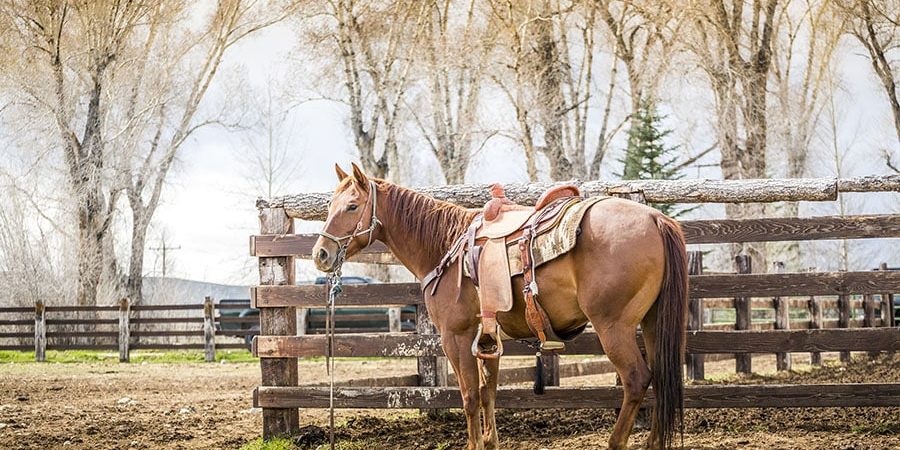Have you ever wished your farm could be mud-free even after the heaviest of storms? Bad weather can bring unpleasant conditions which can be harmful to you, your animals, and the environment of your farm. With proper mud management on horse farms, you can avoid the hassle and improve the quality of life around your property.
In this article, we’ll cover why mud can be more than just a nuisance, long-term solution options, and exactly how to get started!
Why Mud is Problematic
Unfortunately, tracking dirt into the house isn’t the only thing you have to fear from mud. Most noticeably, mud presents a slipping hazard in high-traffic areas. Neither you nor your animals want to end up falling in the mud, especially when a broken leg can be costly and debilitating.
Furthermore, certain bacteria and fungi thrive in damp environments like muddy water. Semi-permanent mud in a low-lying area provides ample opportunity for your livestock to catch an infection.
Deep mud can also be difficult to get rid of, especially in areas that are susceptible to repeated flooding. Preventing mud from developing in the first place is the most important step in mud management on horse farms.
How to Eliminate Mud
Determine the High-Risk Areas
Knowing where to start is key to mud management on horse farms. It’s not feasible to modify all of your land, so you’ll have to be strategic. Focus on high traffic and frequently muddy areas on your farm.
This includes but is not limited to walkways to and from your barn, paddocks, turnouts, arena, and your horse’s outdoor areas. It’s important to install mud-resistant footing material in areas that frequently collect moisture or are at risk of flooding. This means low-lying areas, land near creeks or ponds, or places with prolonged shade are high priority.
Use Short Term Solutions if Necessary
After you’ve evaluated your property, you might find that some areas are in immediate trouble. If this is the case, there are short-term solutions that will help. Keep in mind, however, that these are temporary fixes. Mud will likely continue to develop without a proper solution.
Perhaps the easiest thing to do is add more substrate to the area. This includes gravel, sand, or dirt. In theory, this will help absorb or displace the water causing mud to form. It will also help if the area has become highly compacted.
Only add organic materials like hay, straw, or wood chips if you’re prepared to shovel afterward. While these materials will absorb a large amount of water, they will also retain that water for quite a while, leaving you in almost the same position that you started in.
Implement Long Term Solutions
If the mud on your property develops frequently and is negatively impacting your farm, only long-term solutions will truly solve your problem. These options typically involve modifying your land in semi-permanent ways.
If possible, level your land or move facilities to higher ground. Steep slopes create lots of water runoff which contributes to the development of mud farther downhill. Low-lying areas will also accumulate water, prolonging the amount of time it takes to evaporate.
Certain areas will likely require high-traffic pads and geotextile fabric. These materials supplement the natural substrate, making it more permeable, less prone to erosion, and less likely to develop mud. This process involves choosing a base material, such as Basecore geocells, prepping the area, and then installation.
Geocells are a great farm mud management solution because they’re constructed and designed to naturally drain water. They’re also military-tested, last for many years, and are easy to install. Because of its flexible grid design, BaseCore geocell is able to naturally drain excess water from the surface, making it less likely for mud to form.
Ready to Weatherproof Your Farm?
If you are ready to weatherproof your farm but are in need of some assistance, our team of experts is here to help! We can help you evaluate your needs, determine a solution, and walk you through the installation process.
Backyard Bases proudly supplies farm and horse owners with high-quality BaseCore geocell products designed to meet your footing and your needs for mud management on horse farms. You can access our FAQ page or contact us directly for further information at (888) 897-2224.
